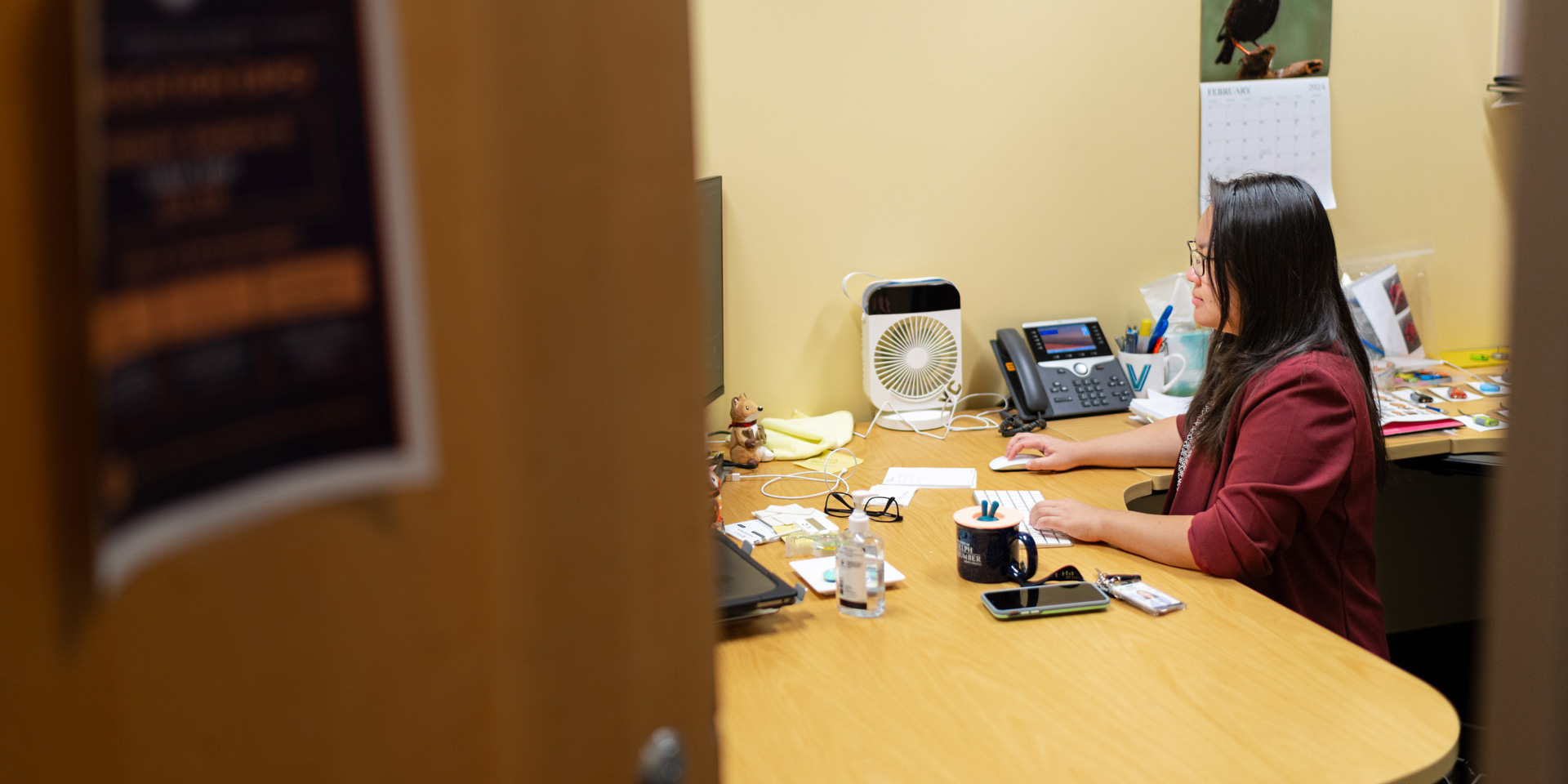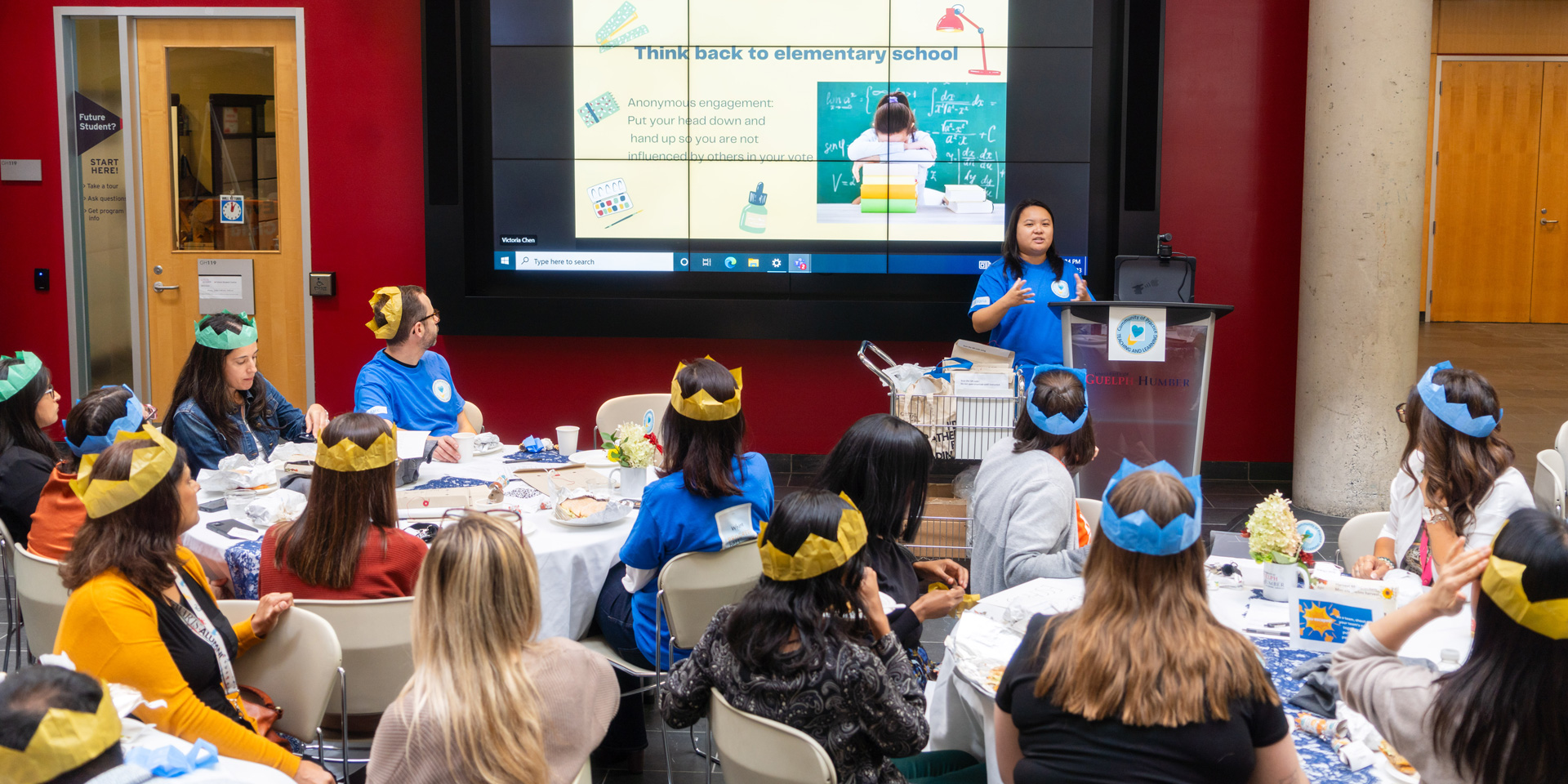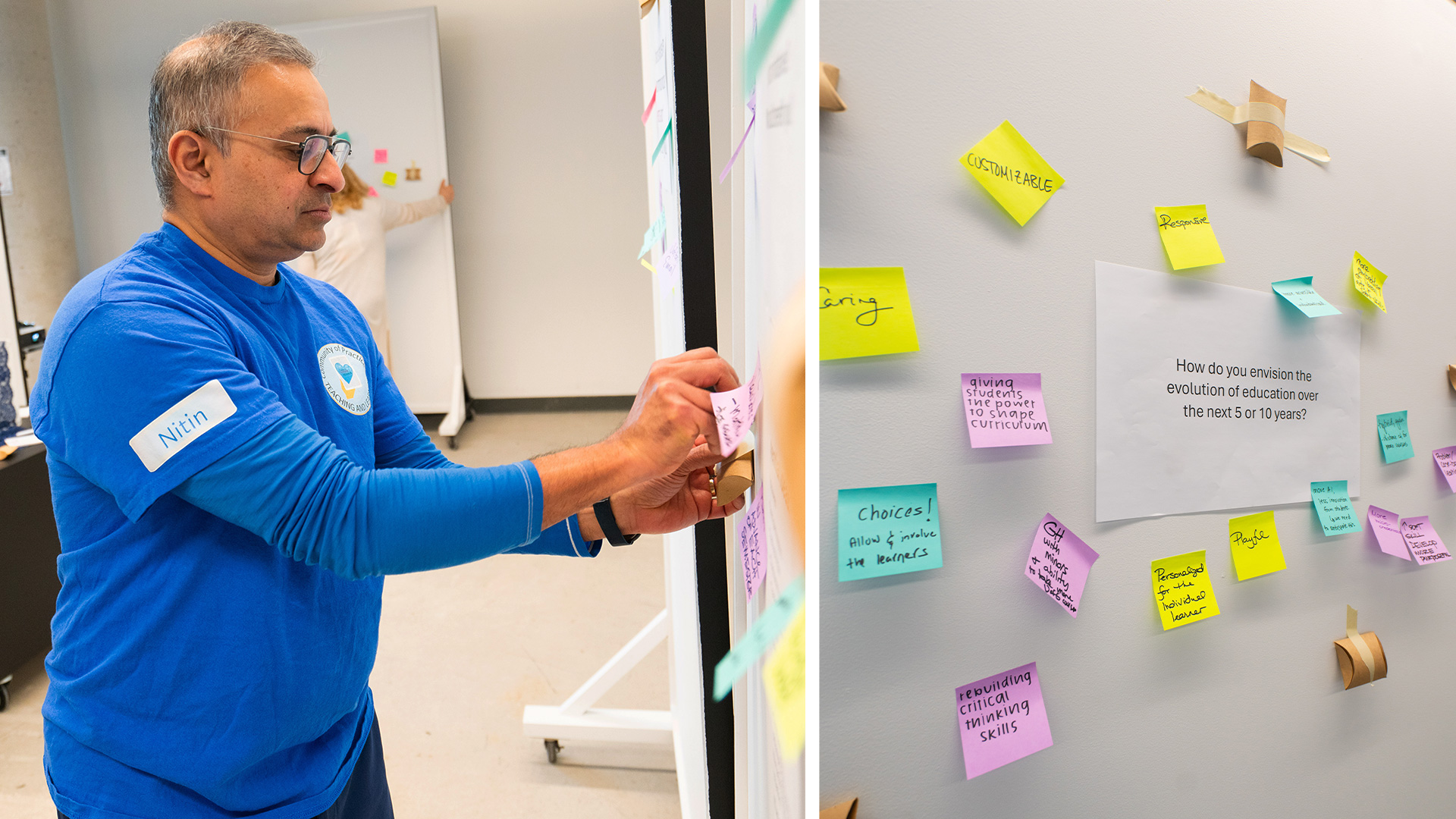How the University of Guelph-Humber’s Community of Practice Teaching and Learning is Guiding a Fresh Perspective on Generative AI

Rather than fearing the unknown of generative AI like ChatGPT, a group of interdisciplinary academics and administrators at the University of Guelph-Humber joined forces to instead leverage its potential.
Established last year, the Community of Practice Teaching and Learning (CPTL) at UofGH aimed to create a supportive space for sharing ideas, perspectives, and ethical considerations on integrating new technologies into teaching and learning. As discussions evolved, the focus transitioned to organizing interactive events, creating community podcast episodes, and curating resources to foster collaboration within the UofGH community.
We sat down with an integral team member of CPTL, Dr. Victoria Chen, to find out more.
Q: How did the Community of Practice Teaching and Learning (CPTL) get started?
A: The CPTL started as a reaction and a solution to the isolating fears of ChatGPT and generative AI. In the fall of 2022, institutions around the world were trying to figure out what to do as there were new erratic headlines every day, calling for the end of academic integrity due to ChatGPT. There were immediate bans on ChatGPT at various universities and calls for use of generative AI detection software to be purchased, while others embraced ChatGPT and incorporated it into their courses and assignments.
Around this time, I conducted research through surveys into the opinions and reactions surrounding ChatGPT among instructors and students. The findings showed diverse perspectives from fears of using ChatGPT and misinformation being passed around, to instructors and students actively embracing the use of generative AI. A middle portion was confused by the conflicting information of banning or using the technology. Instructors and students shared that they wanted clear policies on the use of similar technology but also a more unified understanding or stance on disruptive technology because they will only become increasingly more frequent in the future.
Under the guidance of Dr. Nikki Martyn (Program Head, Early Childhood Studies), we started a “play space”, where program heads and leadership came together to examine generative AI, what it was, how it was being used, and discussed the headlines in the news in a judgement-free space. The conversations were organic and free-flowing – sometimes about AI, and other times about teaching and learning in general, and how UofGH has evolved over time. There wasn’t a set agenda or outcome; CPTL came about naturally!

Q: Dr. Nikki Martyn shared, “It is our vision to create a space of belonging for our teaching and learning community”. Can you expand on that vision?
A: Through this judgement-free space Nikki created, everyone felt empowered to be themselves. As we reflected on our consistent attendance week after week, amidst our already hectic schedules, we pondered the underlying reason. Participants expressed a sense of belonging to a community, acknowledging that although we interacted in passing or during formal meetings, it was in this setting that deeper conversations came to life. Naturally, as academics, we started to quantify and qualify our process and thought, ‘how can we share our ideas with others?’. If we found value in this environment, surely others might too. This is where the ideas of a framework and other initiatives began.
Q: Several people have spent a lot of time developing a framework for this. Can you describe what that framework looks like?
A: The initial response to ChatGPT prompted the group to discuss its potential applications in the classroom, which then expanded to encompass the use of real-world tools and practices that would foster authentic learning experiences. The group consistently revisited the idea that ChatGPT represented just one of many disruptions in education, emphasizing the need for continuous evolution. This led to multiple brainstorming sessions focused on authentic teaching approaches and assessments, drawing from our own experiences and insights from other academics. From these discussions, overarching themes emerged, forming the basis of our framework.
This framework comprises six key themes: Digital Literacy, Communications and Collaboration, Critical Thinking and Problem Solving, Creativity and Innovation, Emotional Intelligence, and Adaptability and Flexibility. Currently, we are developing a repository to house examples of activities and assessments aligned with each theme, aimed at inspiring instructors and staff to incorporate these practices into their courses or work, while also encouraging them to share their own practices with us.
Q: In your opinion, do you think this first year bringing this to the GH community has been a success?
A: It's been an uphill battle to convey our efforts to the UofGH community. Frequently, I hear, “We're a university; isn't teaching and learning our core focus already?” While indeed, everything we do revolves around teaching, learning, or supporting them, there's still ample space for fostering innovation, sharing practices, sparking fresh ideas, and celebrating our progress. We aim to carve out opportunities, pathways, and platforms for instructors and staff to reflect on their teaching approaches and supportive measures, exchange ideas, and feel empowered as a collective community in addressing educational disruptions together.

Q: How did you ensure inclusivity and engagement across the events you hosted this year? Can you discuss the highlights and impact of incorporating interactive elements like escape rooms?
A: This year, we successfully hosted three events - an achievement we're proud of. We aimed to ensure inclusivity by organizing a kick-off event at the start of each semester and a final wrap-up event at the end of the school year to celebrate our progress. During these events, we showcased our initiatives, exchanged ideas on teaching and learning, invited guest speakers to discuss the utilization of teaching tools on CourseLink and AI, and introduced attendees to interactive escape rooms designed to familiarize them with digital tools and engage with UofGH documents in a unique way. Creating these escape rooms fulfilled a personal dream of mine, and the events served as valuable opportunities for staff and instructors to reflect on teaching and learning in a meaningful manner.
We aimed to make every event feel fresh, to excite attendees, and to make them want to join future gatherings. We remain open to exploring new initiatives and hope to expand on these events in the coming year.
Q: You started a podcast! How did this come to be?
A: We acknowledged that relying on a single avenue for sharing our ideas wasn't sufficient. Recognizing that not everyone interested in our initiatives could attend one-time events or weekly meetings, we turned to podcasts as a means to reach a broader audience and also include students. Through interviews with members of our CPTL group, staff and instructors, we've effectively demonstrated how our framework transcends programs and disciplines, while also promoting our Podcast Studios - a professional space open to all staff and faculty. Our goal is to encourage more departments to utilize this resource for their own podcasting needs.
Q: Where can we find your podcasts?
A: Our podcasts are available on University of Guelph-Humber's YouTube channel: https://youtu.be/VkG7RJfCg18?si=reSDuRktEXB-NpO3

Q: How can more of the UofGH community get involved?
A: We're always looking for new ideas and better ways to connect with the UofGH community. Whether it's through events, post-event discussions, or casual hallway chats, we gather insights to understand what's working well and the challenges our community faces. As we move into our second year, we hope to continue the work we are doing and explore new directions, including greater involvement from instructors, staff, students, and our partner institutions. We are excited for what the future holds, as we continue to adapt and evolve.
Q: Any final thoughts?
A: Tackling educational disruption and shaping the future of education requires everyone's participation. When you step into a classroom or your office, routines can feel isolating. But with every event, podcast episode, and initiative, we're reaching instructors, staff, and students in new ways. In some ways, we are the disruptors, changing routines and prompting fresh thinking about teaching and support methods. Our aim is to foster a vibrant community spirit that encourages attending more university events, tuning into podcasts from various departments, and engaging with individuals beyond your usual circle.

